UN Summits Week 2019
23-27 September 2019 | UN Headquarters, New York
Analysis and Summary Highlights
World leaders convened at UN Headquarters in New York to consider key issues related to “action for people and planet” during the opening of the 74th session of the UN General Assembly (UNGA). Inside the halls of the UN and outside on the streets of not only New York, but cities around the world where protests were held, the verdict of the people was clear: leaders are failing to address the environmental and development emergency that the world is currently facing. There was general agreement that the incremental steps announced during the week are unlikely to address the crisis, which requires deeper, more fundamental change.
The week started off with the Climate Action Summit, on Monday, 23 September, convened by UN Secretary-General António Guterres. This one-day meeting aimed to boost ambition and accelerate actions to implement the Paris Agreement. The Sustainable Development Goals (SDG) Summit, which was also the first meeting of the High-level Political Forum to convene under the auspices of the UNGA since the adoption of the 2030 Agenda on Sustainable Development, took place on 24-25 September, to follow up and review progress in the implementation of the 2030 Agenda and its 17 SDGs, with just over a decade left to the target date of 2030.
On Thursday, 26 September, the High-level Dialogue on Financing for Development, the first such dialogue since the adoption of the Addis Ababa Action Agenda (AAAA) in July 2015, discussed how to accelerate progress in the implementation of the AAAA and financing the 2030 Agenda, through energizing growth and tackling challenges in the global economy, encouraging public and private investment to align with the 2030 Agenda, and promoting new and innovative initiatives that target gaps in financing sustainable development. The week ended on Friday, 27 September, with the High-level Midterm Review of the Small Island Developing States Accelerated Modalities of Action (SAMOA) Pathway, which discussed progress made in addressing the priorities of small island developing states through the implementation of the SAMOA Pathway.
IISD Reporting Services, through its ENB meeting coverage, provided daily web coverage, reports of each of the Summits and High-level meetings, and a summary and analysis report of the UN Summits Week 2019.
Photos by IISD/ENB | Kiara Worth
For photo reprint permissions, please follow instructions at our Attribution Regulations for Meeting Photo Usage Page.
SAMOA Pathway Review
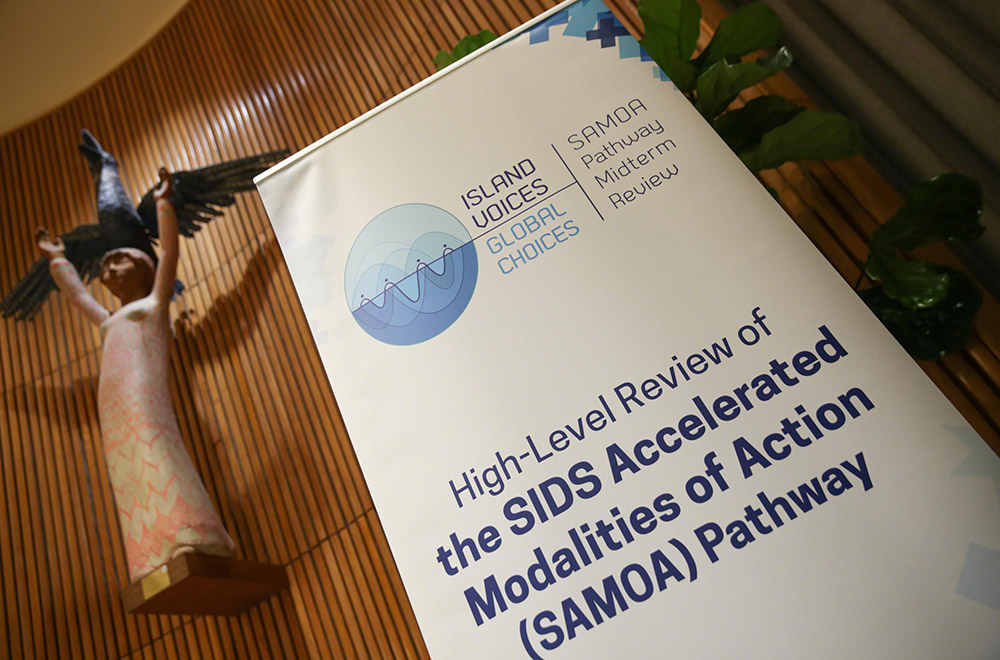
As heads of state and government, and ministers, gathered to review progress made in addressing the priorities of small island developing States (SIDS) through the implementation of the SIDS Accelerated Modalities of Action (SAMOA) Pathway, frustration at the slow pace of progress, despite exponentially rising threats, was clearly evident.
Prime Minister Mia Mottley, Barbados, made an impassioned appeal on behalf of the Alliance of Small Island States (AOSIS) during the opening session. She lamented the lack of progress since the Barbados Programme of Action 25 years ago and reminded participants that the UN Charter commits to respect the right to life. “We have come to this point of time with a selfishness that is unparalleled,” she said.
The opening segment also heard from Jason Momoa, actor, who appealed to leaders to honor their commitments to the Paris Agreement on climate change, warning that humans are the “disease infecting the planet” and that “entire islands are drowning into the sea due to emissions by first world countries.”
The opening segment was followed by two multistakeholder dialogues:
- Progress, gaps, and challenges: This session discussed, among other things: gaps in finance, including difficulties in accessing available and affordable funding; the devastating effects of natural disasters; the long-term benefits of investing in resilience; holding big emitters accountable; disaster risk reduction (DRR) and management including through the Sendai Framework for DRR; efforts to reduce the reporting burden on SIDS; and the need for strong institutions to enable SIDS to recover sooner and better after disasters.
- Priorities, solutions, and the way forward: This session discussed, among other things, helping SIDS “build back better” in the aftermath of disasters; partnerships; the need for concessional funding and special trade treatment for middle-income countries (MICs) in the Caribbean; “debt for climate adaptation swaps” to fund resilience; and the potential of the blue economy and the digital economy to drive economic growth, development, and employment.
A Political Declaration was adopted during the closing, recognizing progress in areas such as social inclusion, gender equality, peaceful, prosperous, and inclusive societies, as well as in making communities safer. At the same time, it urges international action in a number of areas, including finance, capacity, and institutions.
+ Visit the web coverage for the SAMOA Pathway Review
+ Read the ENB report for the SAMOA Pathway Review (HTML or PDF format)
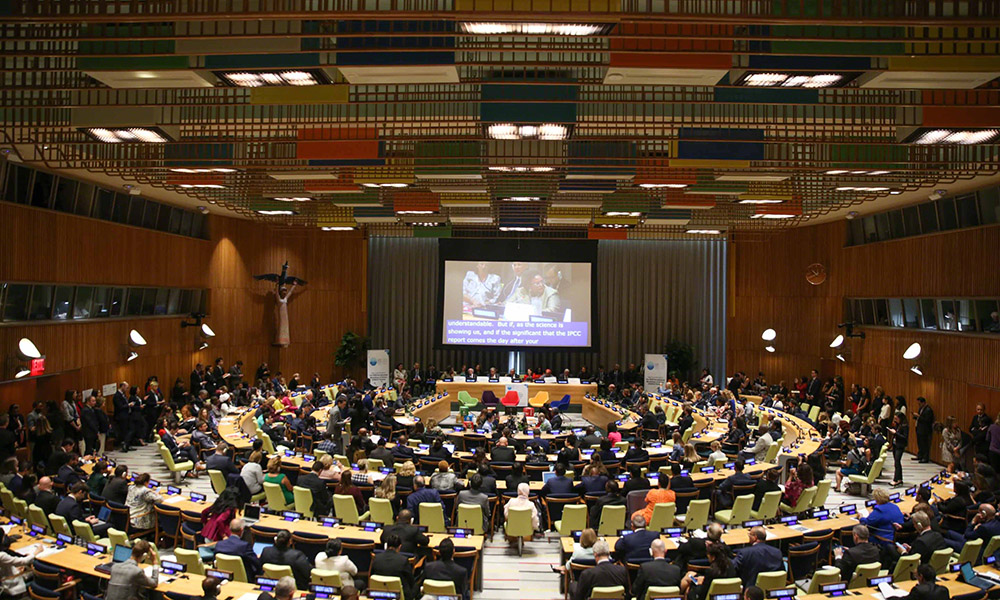
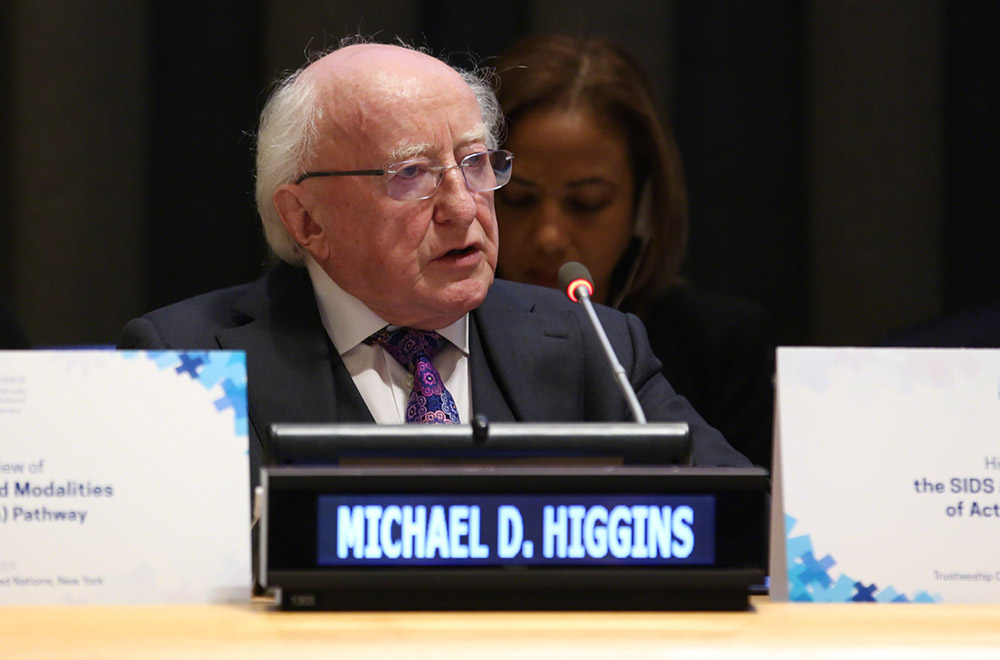
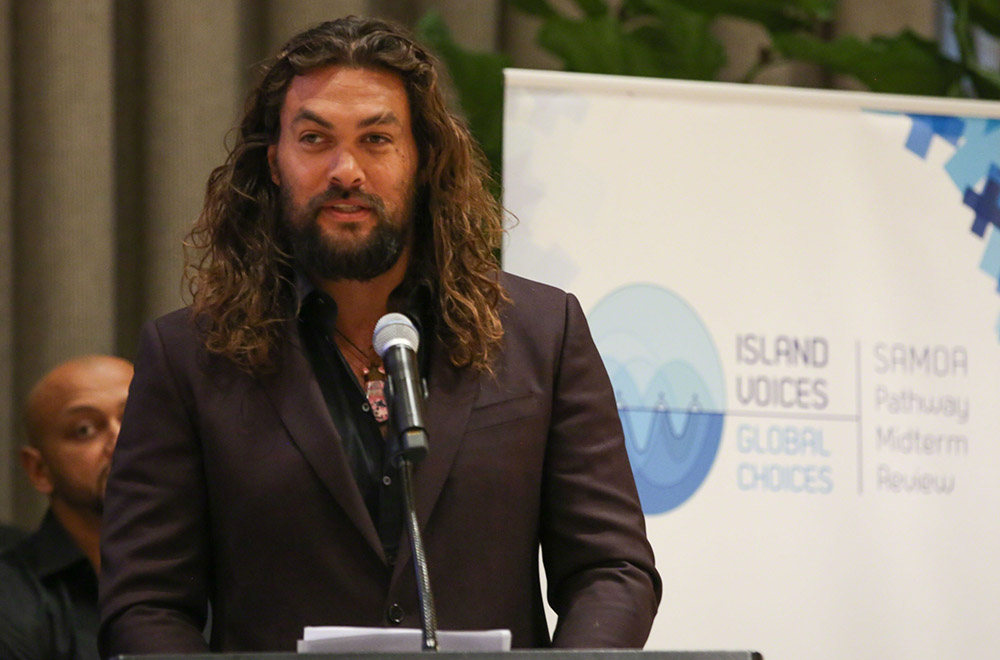
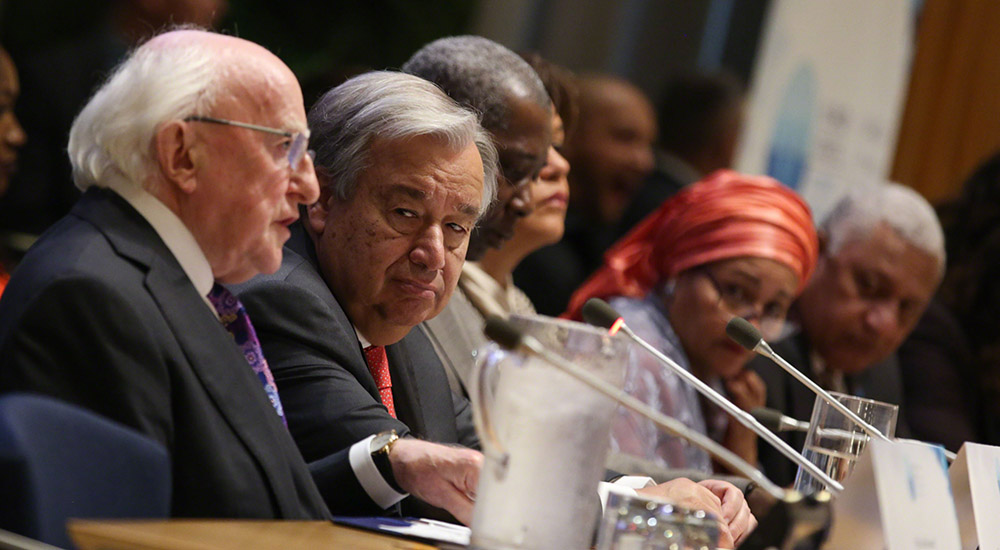
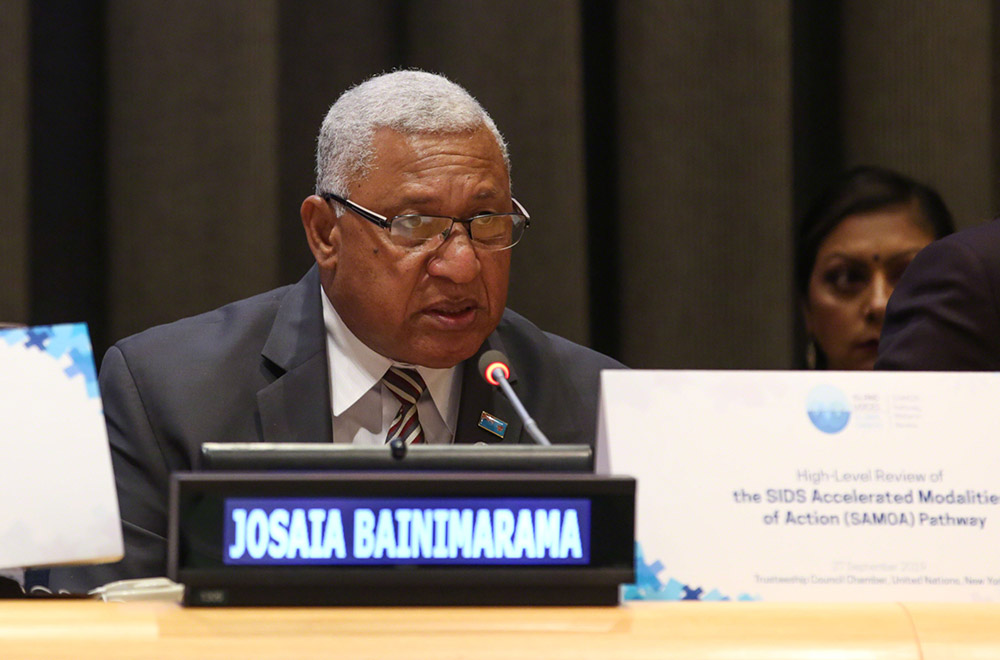
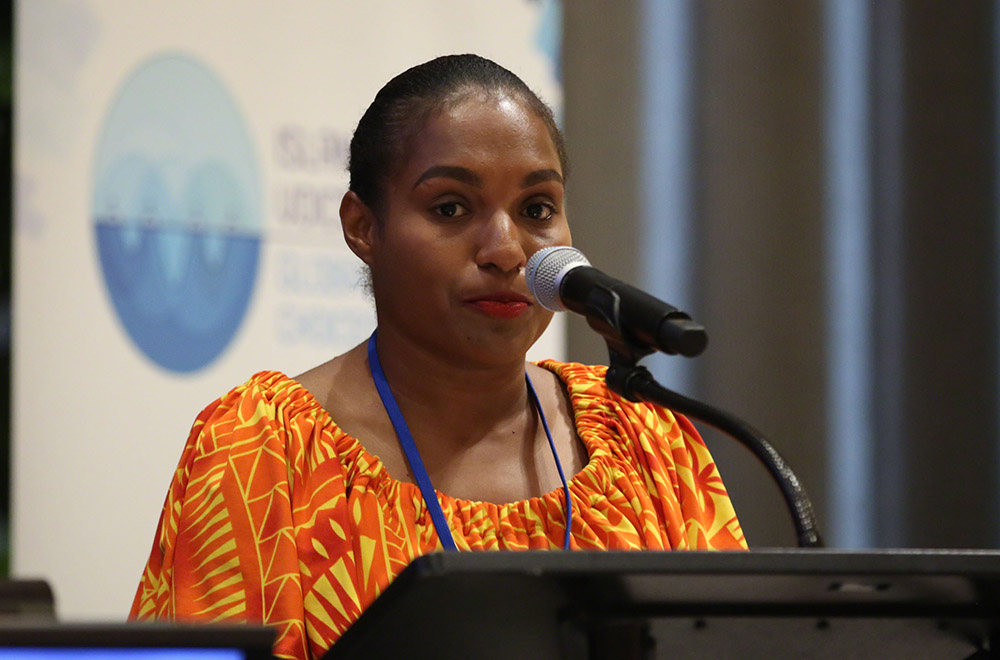
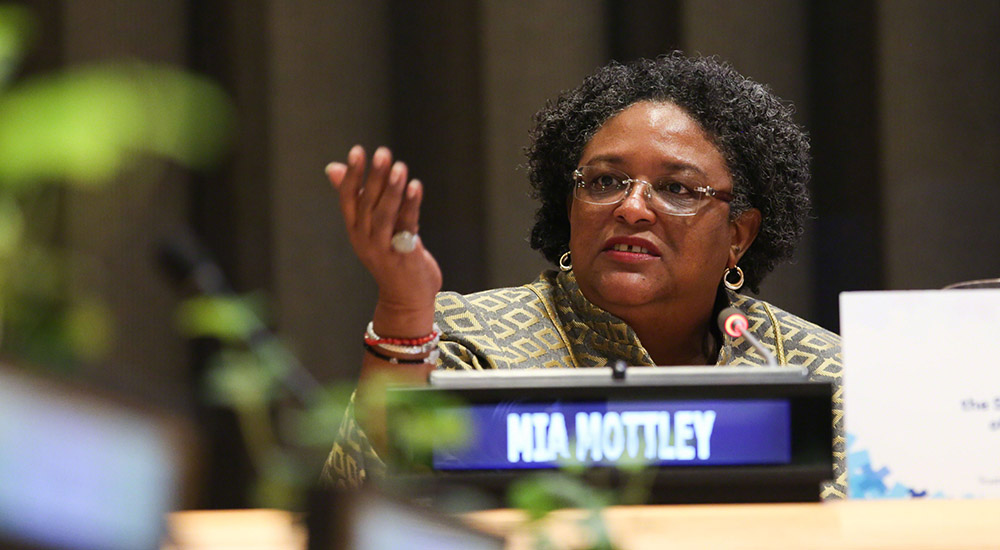
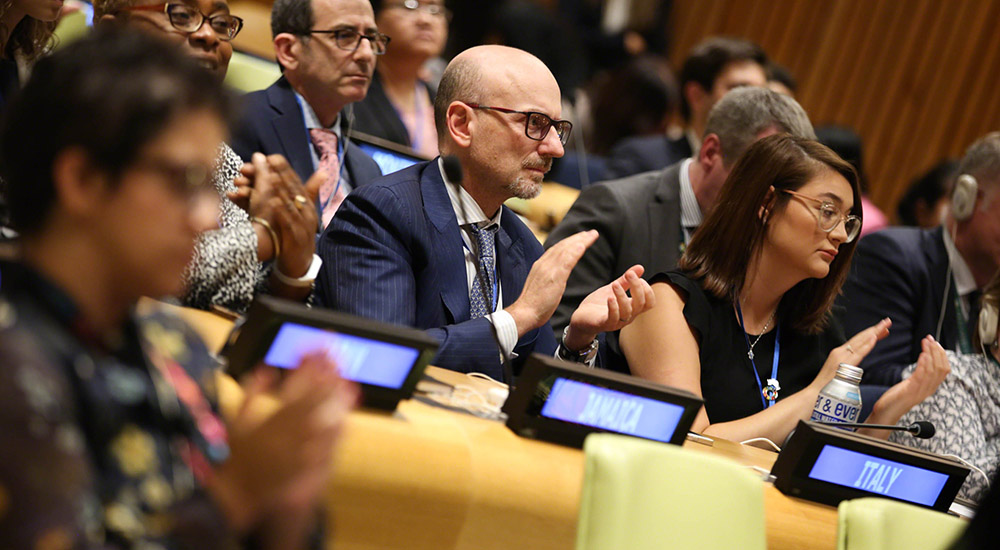
Highlights for the Financing for Development Dialogue
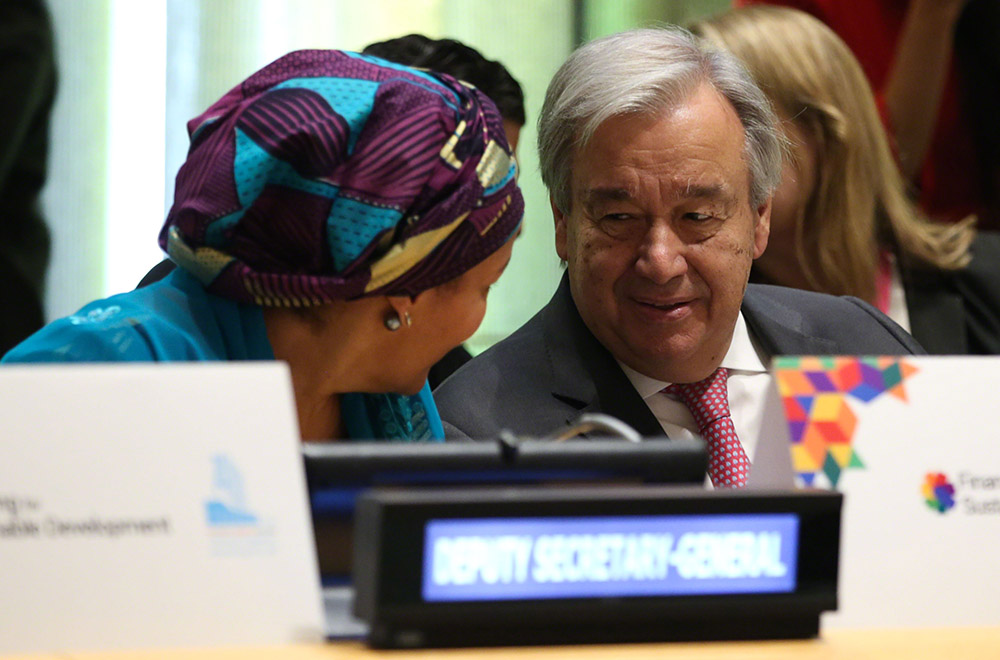
Addressing the opening session of the High-level Dialogue, the first such dialogue since the adoption of the Addis Ababa Action Agenda (AAAA), Bill Gates, businessperson and philanthropist, called for realism about the gaps that private financing can, and cannot, fill. While calling for more equitable tax collection systems and more effective spending, he called on governments to “protect aid.”
The Prince of Wales called for a more radical approach. In his video address to the first interactive dialogue, he said the current market system is no longer fit for purpose, and a new approach rooted in sustainable markets is needed to move from billions to trillions, to finance sustainable development.
The Dialogue, held at UN Headquarters in New York, sought ways to accelerate progress in the implementation of the AAAA and financing the 2030 Agenda. The opening session was followed by four interactive dialogues:
- Putting public resources to work for more equal, sustainable societies, including by combatting illicit financial flows (IFFs): This session discussed, among other things: international action on tax avoidance and evasion; tax collection; addressing fair contracts and concessions on natural resources; recuperating IFFs; regulating cross-border financial flows; and adequate regulation of the private sector.
- Financing the Sustainable Development Goals (SDGs) and climate action against rising debt burdens: This session discussed, among other things: zero-interest loans, or loans that are linked to sustainable development criteria; “debt for sustainable development and climate action” swaps; legal frameworks to encourage the private sector to invest in a more socially and environmentally sound manner; capacity for public debt management; and using vulnerability indices as graduation criteria for countries.
- Moving the money to fill the climate action and SDG financing gap: This session considered, among other things: mobilizing private finance; getting more value out of investments; greening global finance; public-private partnerships; prioritization; blending; inclusion, including through digital technologies; carbon taxes; the need for scalability; techniques and tools to moving trillions of dollars into the right places; and the importance of better regulatory structures and investor education.
- Announcements and new initiatives: Governments described national and global initiatives, including, for instance: Saint Lucia’s Country Financing Roadmap, to diagnose challenges and produce an action plan to overcome them; an initiative by the International Federation of Red Cross and Red Crescent Societies and the Islamic Development Bank, aimed at combating cholera in 29 member countries of the Organization of Islamic Cooperation; plans by Denmark to double climate-relevant official development assistance (ODA); and a public campaign, to be launched in 2020, to empower people to ensure their pensions are no longer invested in fossil fuels, tobacco, and supply chains that employ child labor.
During the closing, UN Deputy Secretary-General Amina J. Mohammed called for the drive and commitment demonstrated during the day to be built upon and go further, and said the next FfD Forum will aim to rally policymakers to tackle systemic challenges in all areas of the AAAA.
+ Visit the web coverage for the Financing for Development Dialogue
+ Read the ENB report for the FFD Dialogue in English (HTML or PDF format).
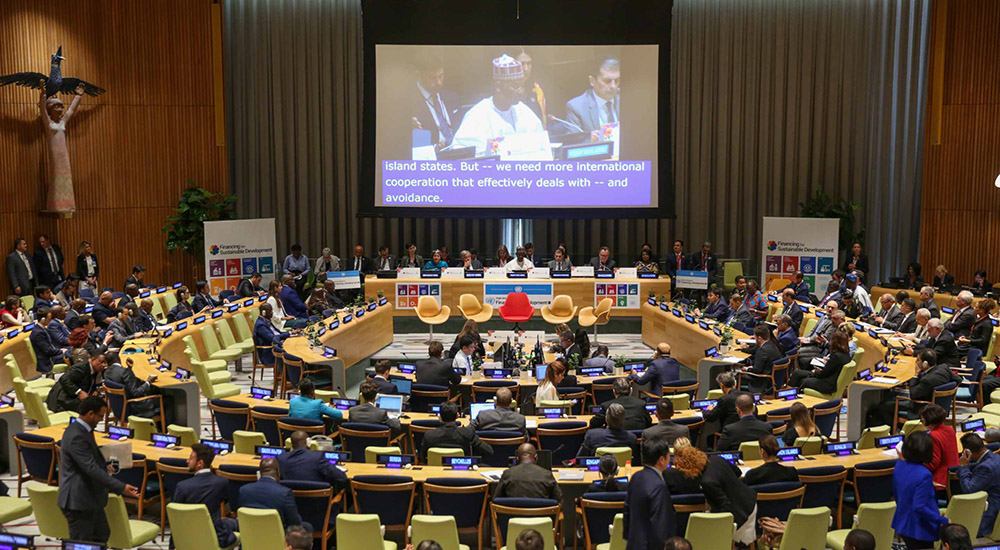
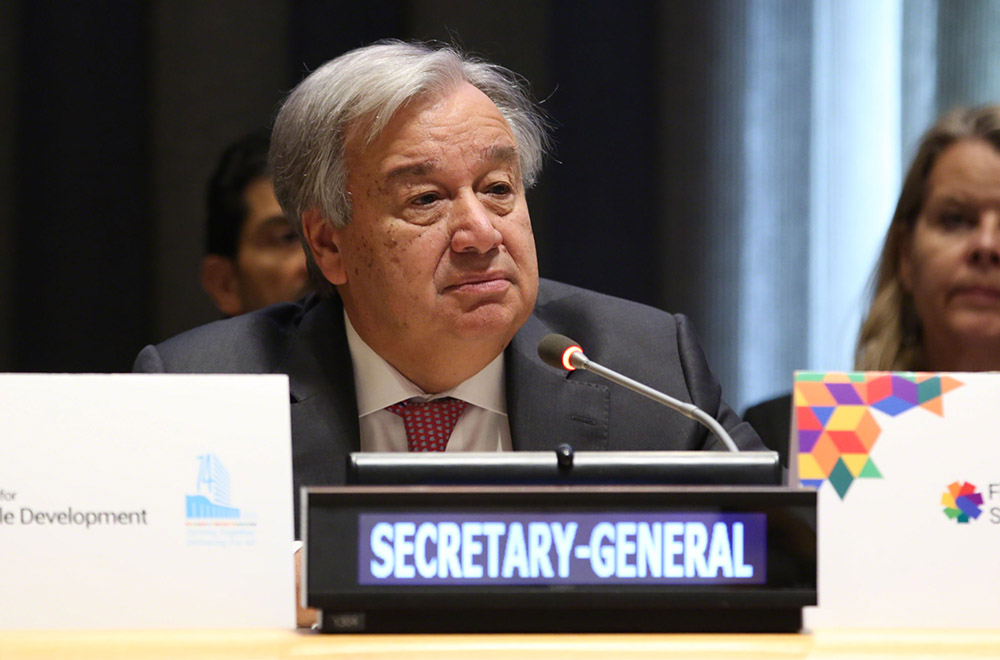
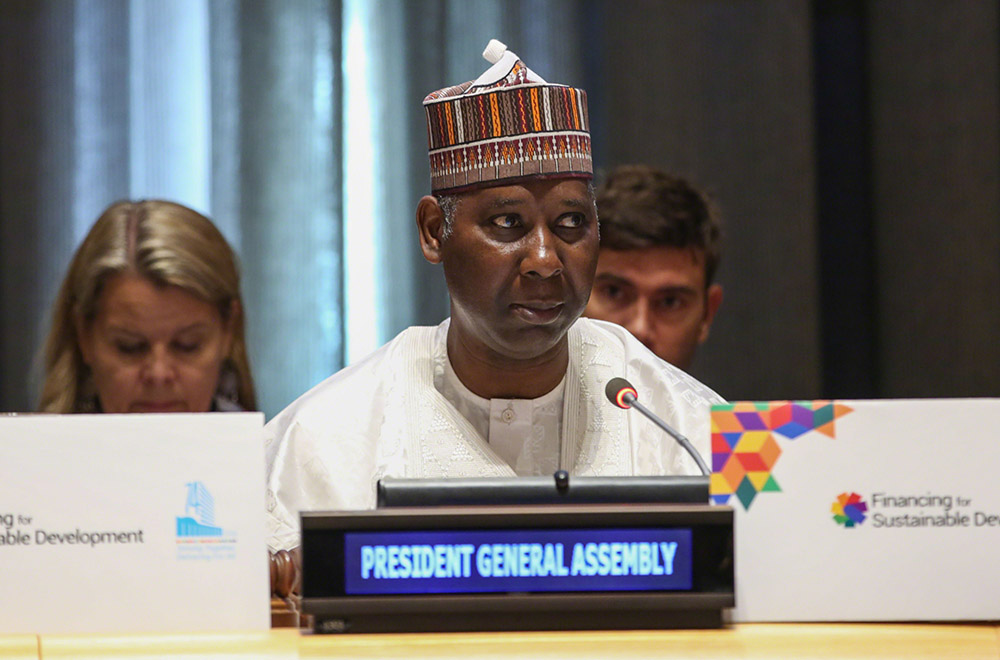
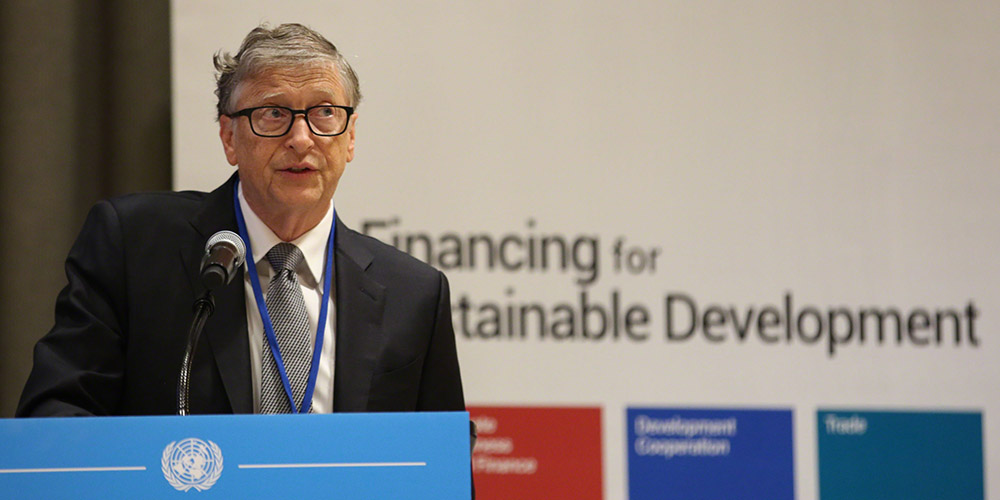
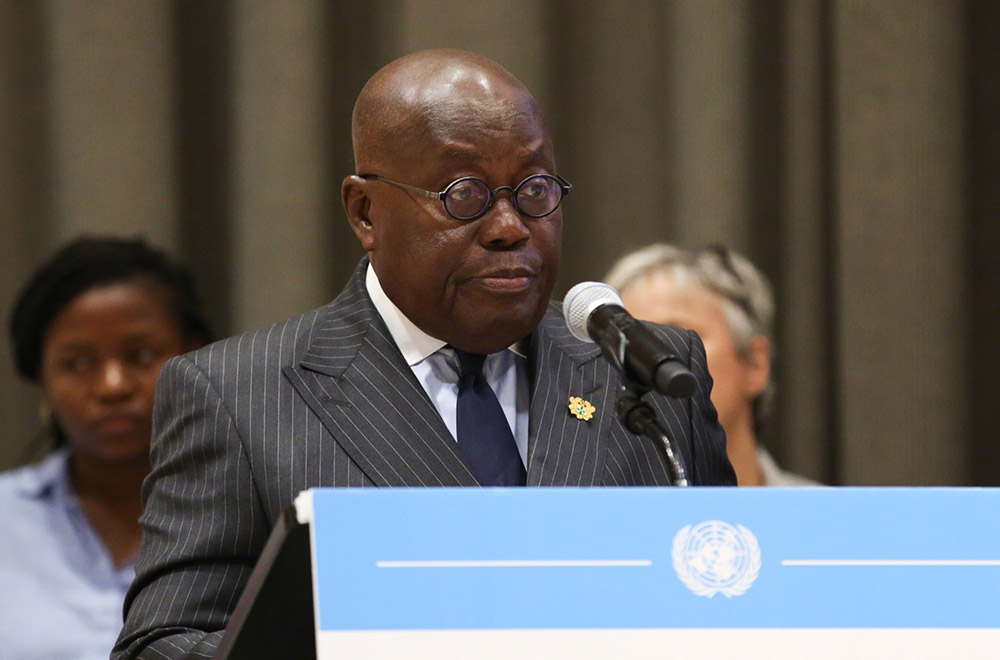
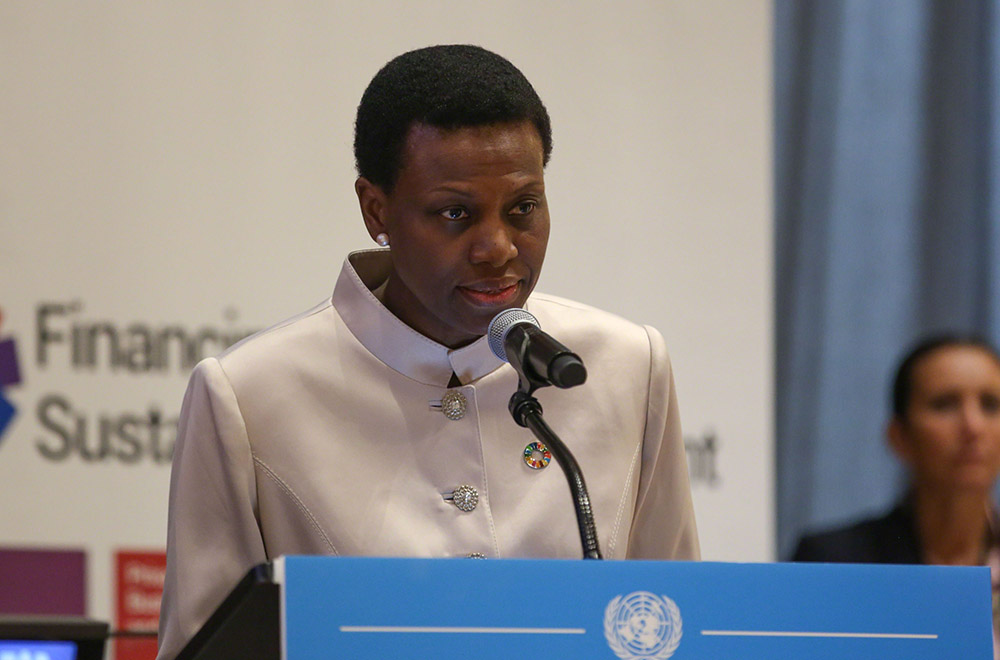
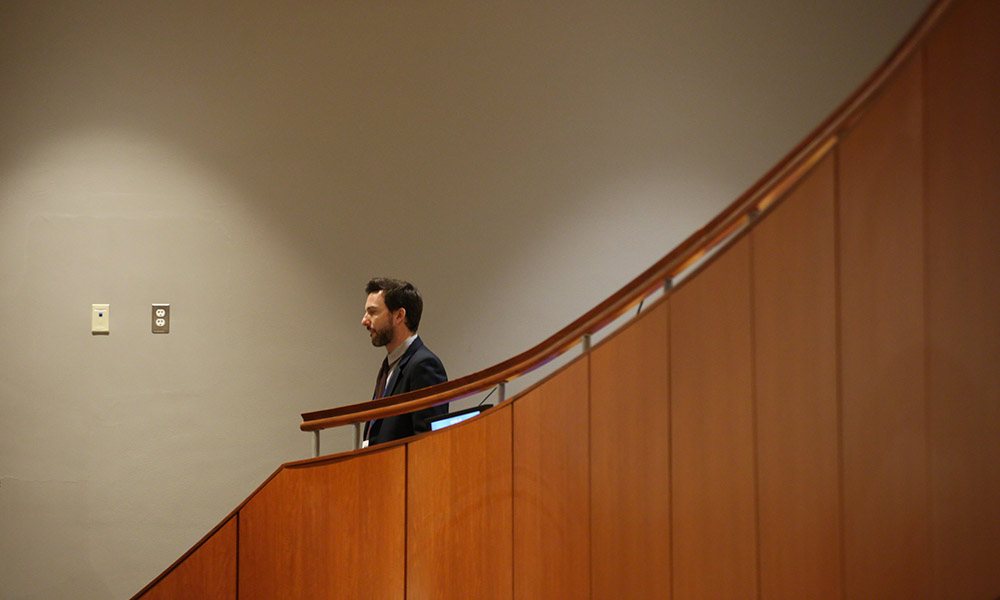
Highlights for the Sustainable Development Goals (SDG) Summit
Wednesday, 25 September 2019
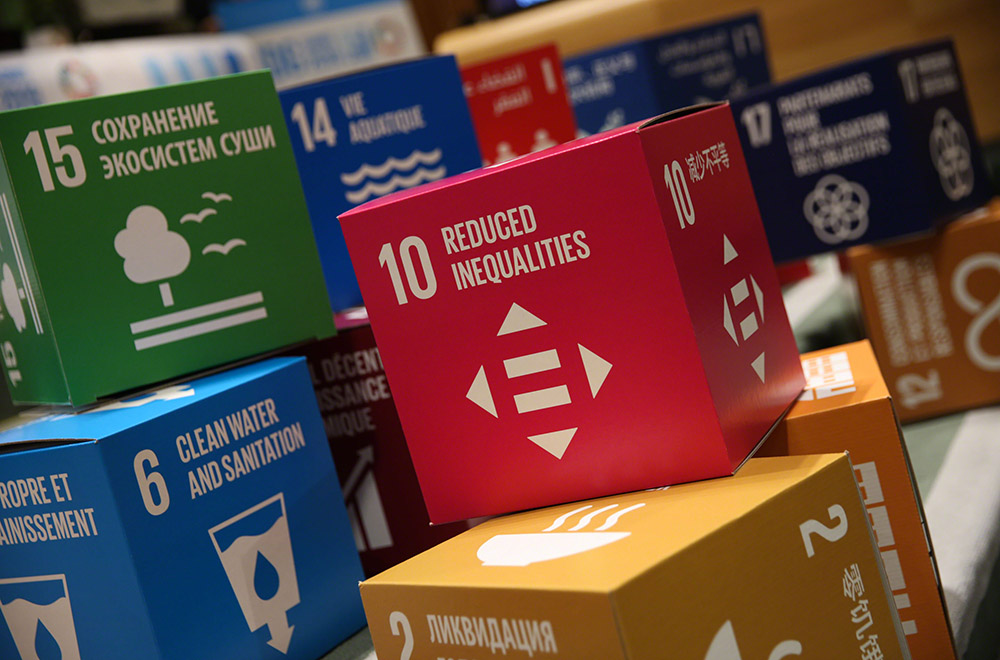
On the second and final day of the SDG Summit, five further “leaders dialogues” were held:
- Critical entry points for accelerating the achievement of the SDGs: Critical entry points described by the heads of state and government included fighting poverty and inequality; achieving sustainable cities and communities; promoting sustainable consumption and production; political commitment; financing; public administration systems; improved data collection; access to justice; and women’s rights.
- Measures to leverage progress across the SDGs: These included a “systematic change in thinking,” particularly in finance ministries; addressing climate change and protectionist policies; ensuring better financing for middle income countries (MICs); providing social assistance for households; providing employment; stemming illicit financial flows; awareness raising, to change mindsets and stimulate action by governments; and the transformational potential of SDG 5 (gender equality).
- Localizing the SDGs: Speakers highlighted the importance of localizing SDGs by building local ownership; addressing structural challenges, such as data limitations; including women and youth in decision-making; making adequate resources available; and recognizing the critical role of local governments, which act as first responders to which people can turn for predicable, accessible support.
- Partnerships for sustainable development: Speakers highlighted the mutual responsibility of governments and stakeholders; and the need for: addressing the root causes of vulnerability; public-private partnerships; online voluntary commitment platform; enhanced impact assessments; gender equality; meaningful and transformative partnerships to translate ambitions into action; international cooperation; and a UN treaty on business and human rights.
- The 2020-2030 vision: Speakers discussed the 21 SDG targets with a 2020 deadline, including on biodiversity and natural resource management; the need for additional finance on concessional terms; the role of robust partnerships with all stakeholders; addressing wealth concentration; ending fossil fuel subsidies; meaningful participation of marginalized groups; and the need to step up ambition as we enter the decade of delivery.
- Commitments to double contributions to the Green Climate Fund by France, Norway, the Republic of Korea, and Sweden, and climate finance pledges from countries, including from the UK, Qatar, Spain, and Singapore. Philanthropies also made commitments, including the Bill and Melinda Gates Foundation.
- National plans, including for climate neutrality by Germany (by 2050) and Slovakia (also by 2050); and a reduction of emissions by Denmark (70% reduction, compared to 1990), and the Netherlands (95% by 2050, compared to 1990). The Russian Federation announced its ratification of the Paris Agreement.
- Commitments by sub-national governments, including a commitment by Montreal, Canada, to reduce emissions by 55% by 2030; by Maine, US, to become carbon neutral by 2045; and by Surabaya, Indonesia, to launch a climate-friendly transport initiative.
- Ambitious plans by vulnerable countries like Djibouti, Fiji, and Seychelles to achieve 100% renewable energy, and to strengthen adaptation efforts.
- Commitments by private sector actors, including by the power company Ørsted to become carbon neutral by 2025; and a call by asset managers overseeing USD 34 trillion to phase out fossil fuel subsidies.
Further statements followed during a plenary session. The youth were scathing in their final assessment: “Leaders of the world, you made a bold commitment in 2015. But you are failing. We need a dramatic change of course in 2020. This is make or break for the planet.” A stirring rendering of spoken word by Ameer Brown reflected similar frustrations: “Those we look up to as masters of the masses/ have enslaved our every opinion/ Allowing us to drift from the problem and not fix it/ It’s a hard pill to swallow when we’re poverty stricken…”
+ Visit the web coverage for the SDG Summit
+ Read the ENB report for the SDG Summit (HTML or PDF format)
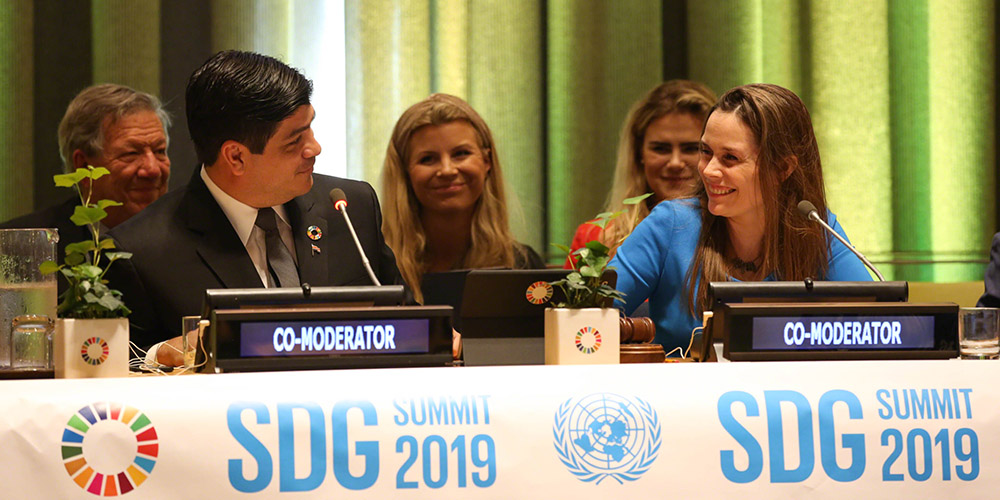
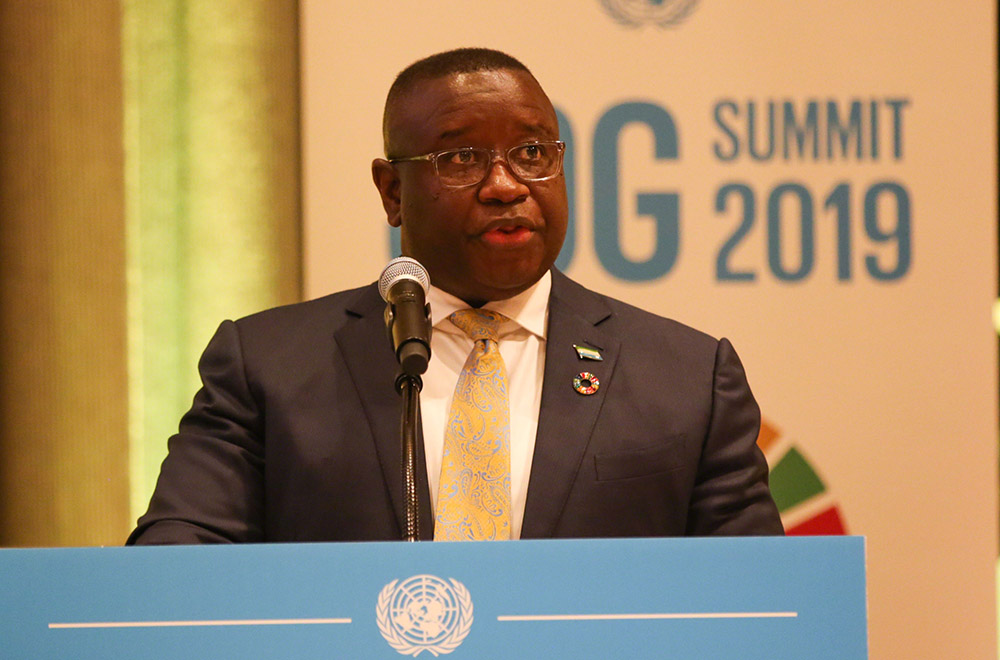
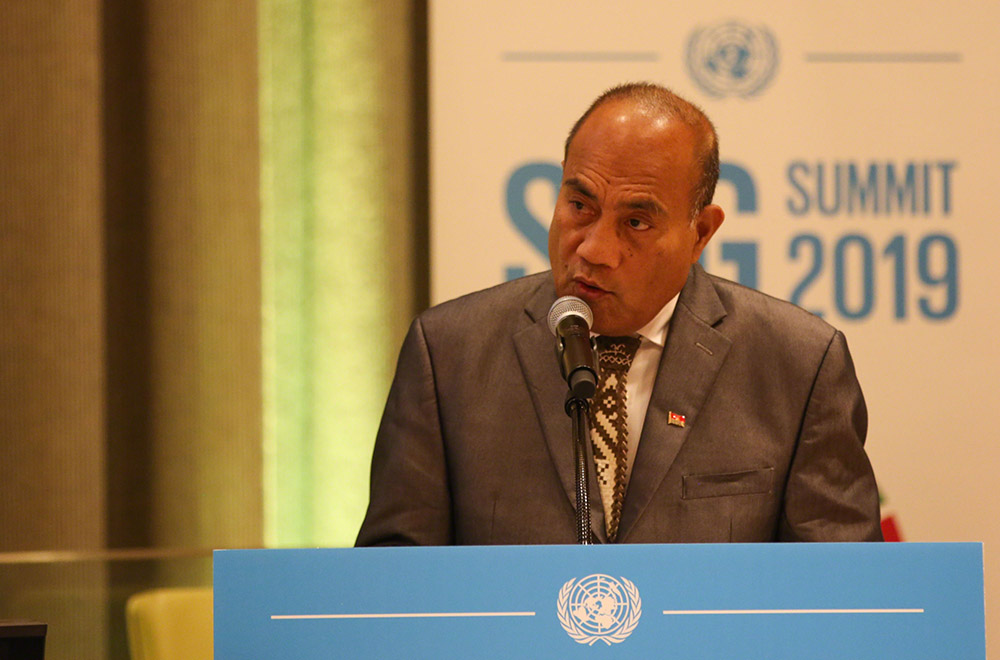
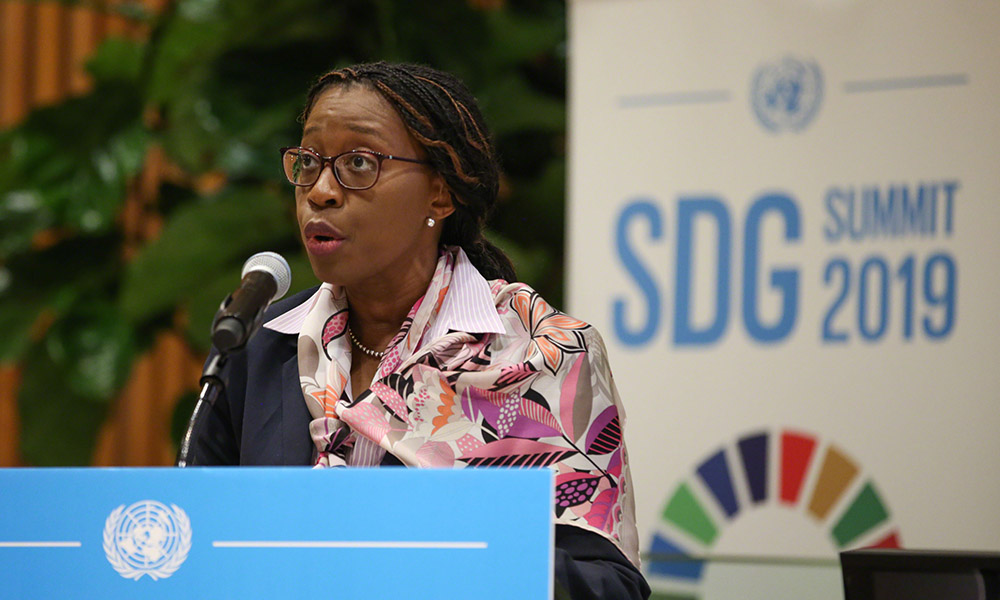
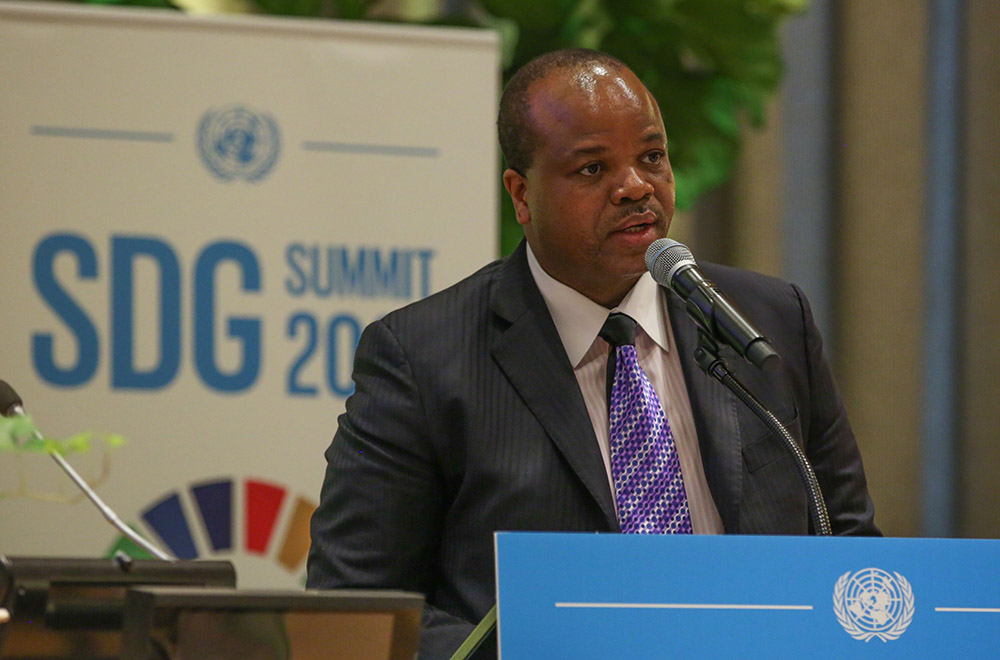
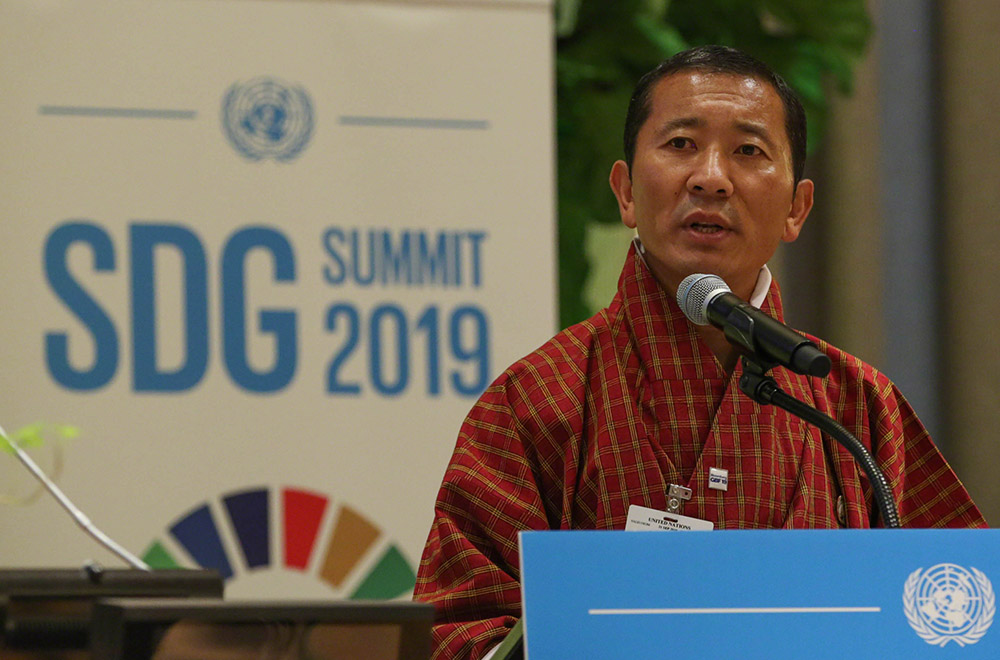
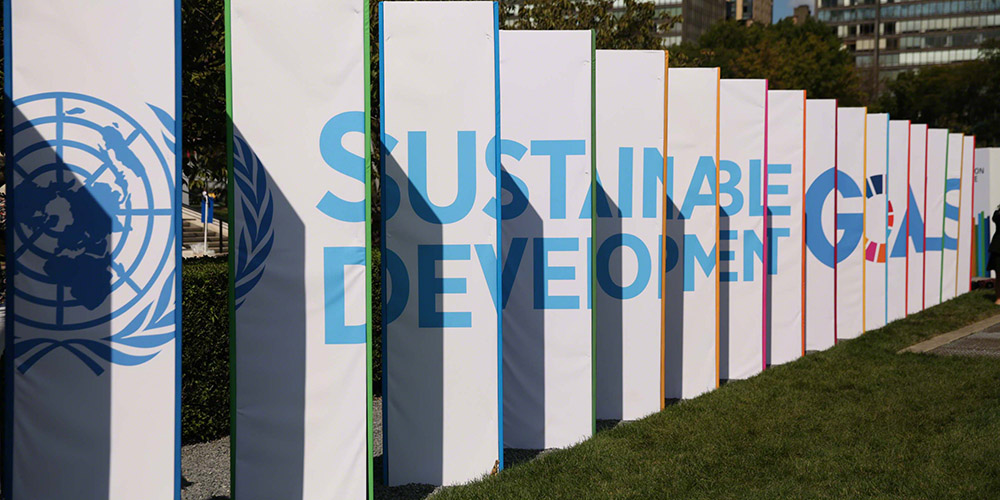
Tuesday, 24 September 2019
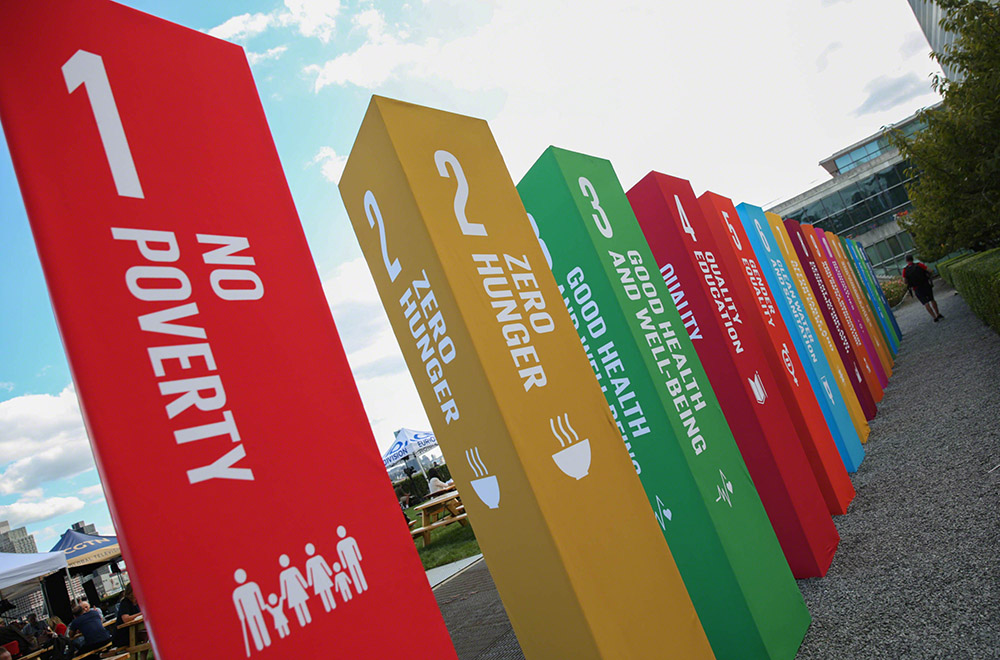
UN Secretary-General António Guterres issued a global call for a decade of action to accelerate progress towards the Sustainable Development Goals (SDGs) during the opening of the SDG Summit. “We must regain the trust of the people and respond to the experience of alienation generated by the current model of globalization,” he said.
The SDG Summit, which is also the first High-level Political Forum on Sustainable Development (HLPF) to convene under the auspices of the UN General Assembly (UNGA) since the adoption of the SDGs, aims to review progress in the implementation of the 2030 Agenda and its 17 SDGs, with just over a decade left until the target date of 2030. The opening session of the Summit on Tuesday afternoon adopted the HLPF political declaration (A/HLPF/2019/L.1).
A “fireside chat” on the 2019 Global Sustainable Development Report (GSDR 2019) followed. Presenting the report, Peter Messerli, Co-Chair of the independent group of scientists who produced the GSDR 2019, warned the Earth system is approaching tipping points which may be “irreversible or even unmanageable.” He listed the six “entry points” identified in the report for accelerated action: human well-being and capabilities; sustainable and just economies; food systems and nutrition patterns; energy decarbonization and universal access; urban and peri-urban development; and the global environmental commons.
Statements were then delivered on behalf of groups of Member States and participating states in a plenary session, including by the Group of 77 and China (G-77/China), Least Developed Countries (LDCs), Association of Southeast Asian Nations (ASEAN), Caribbean Community (CARICOM), African States, EU, Landlocked Developing Countries (LLDCs), Alliance of Small Island States (AOSIS), and Like-Minded Group of Countries Supporters of Middle-Income Countries.
A “leaders dialogue” on megatrends impacting SDG achievement featured statements by heads of state and government, and of multilateral institutions. Five more dialogues will take place on the second day of the Summit.
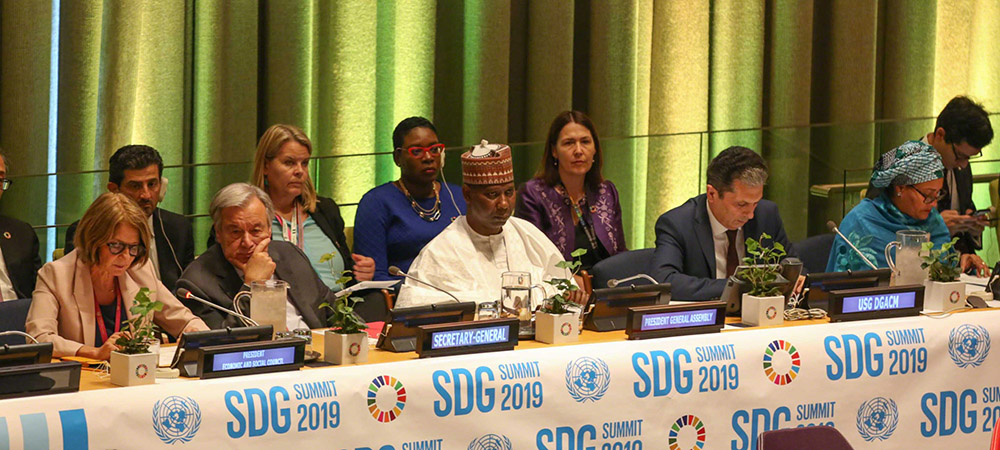
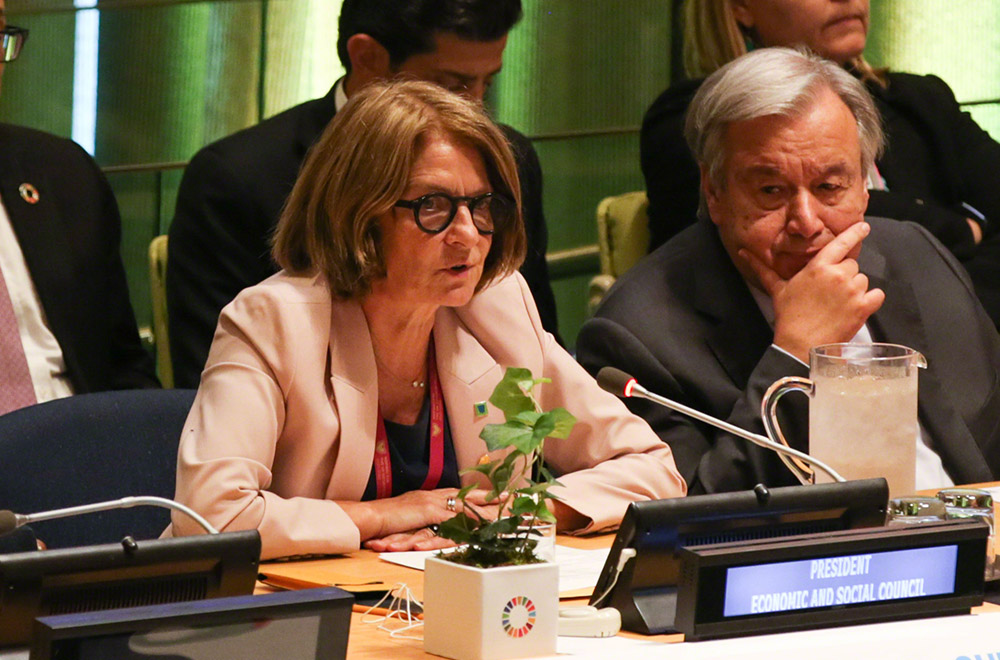
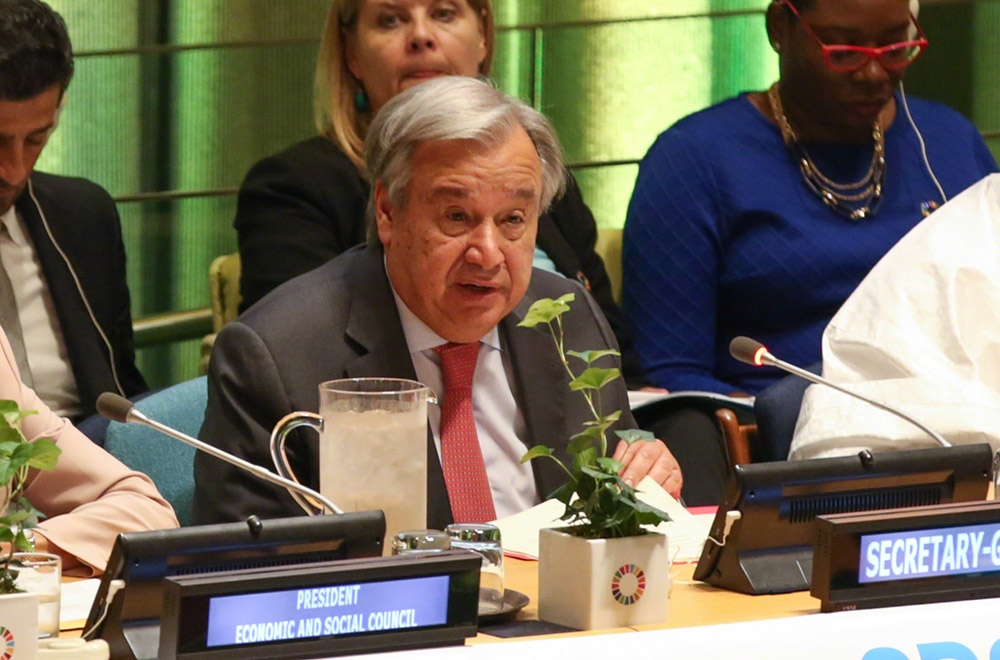
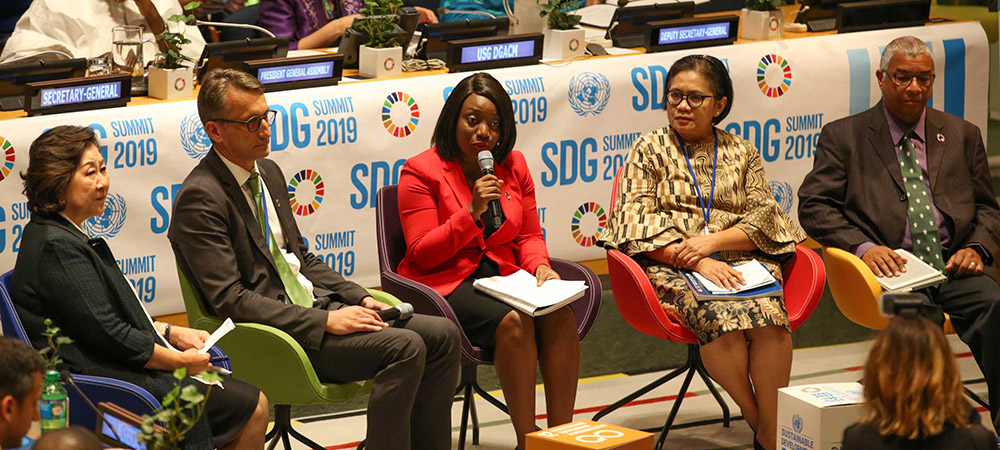
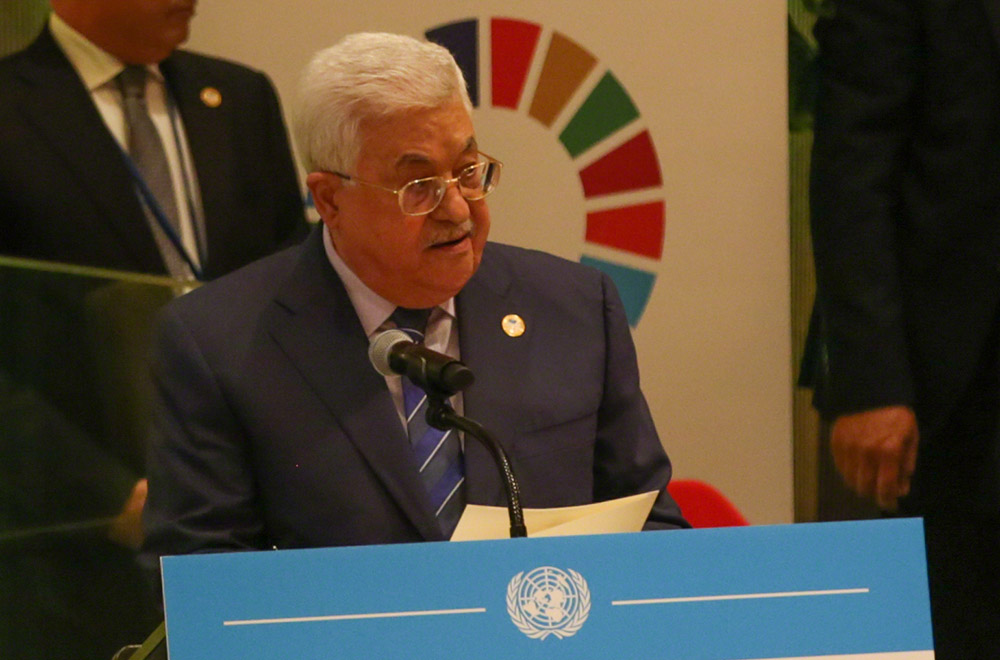
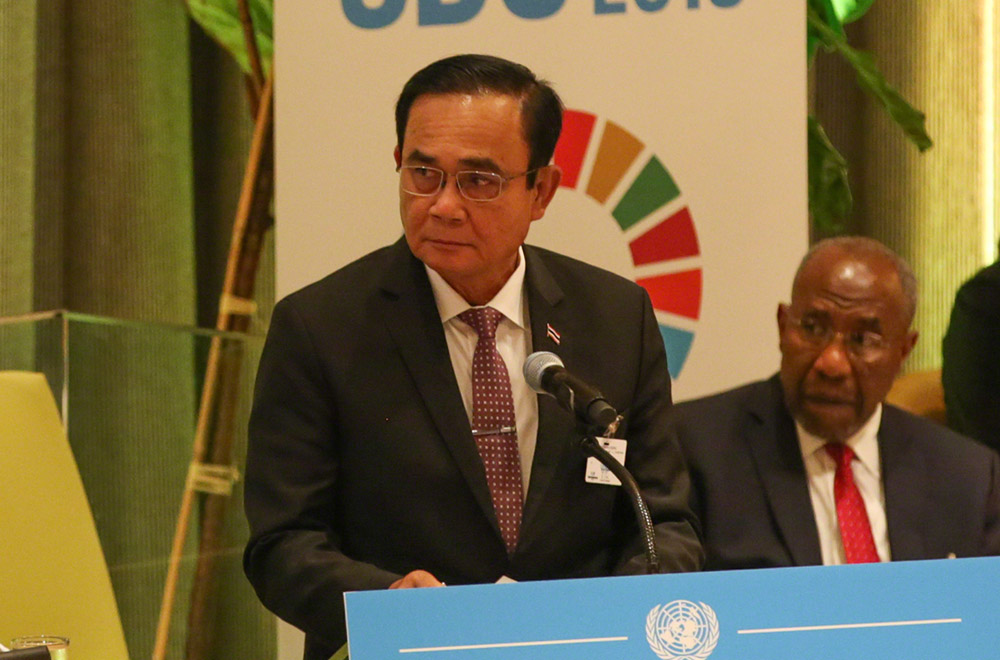
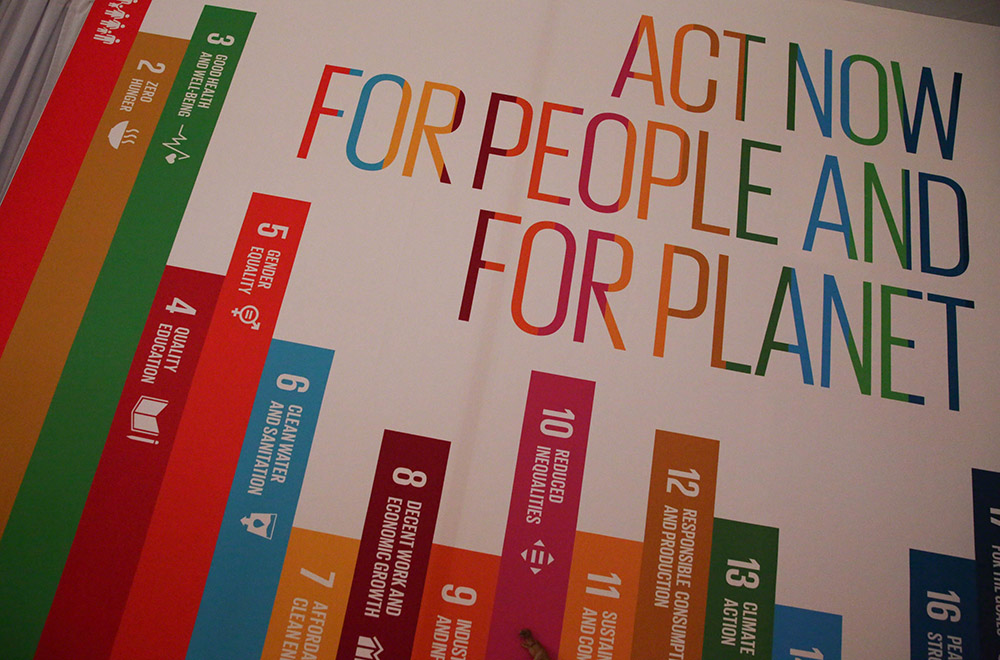
Highlights for the Climate Summit
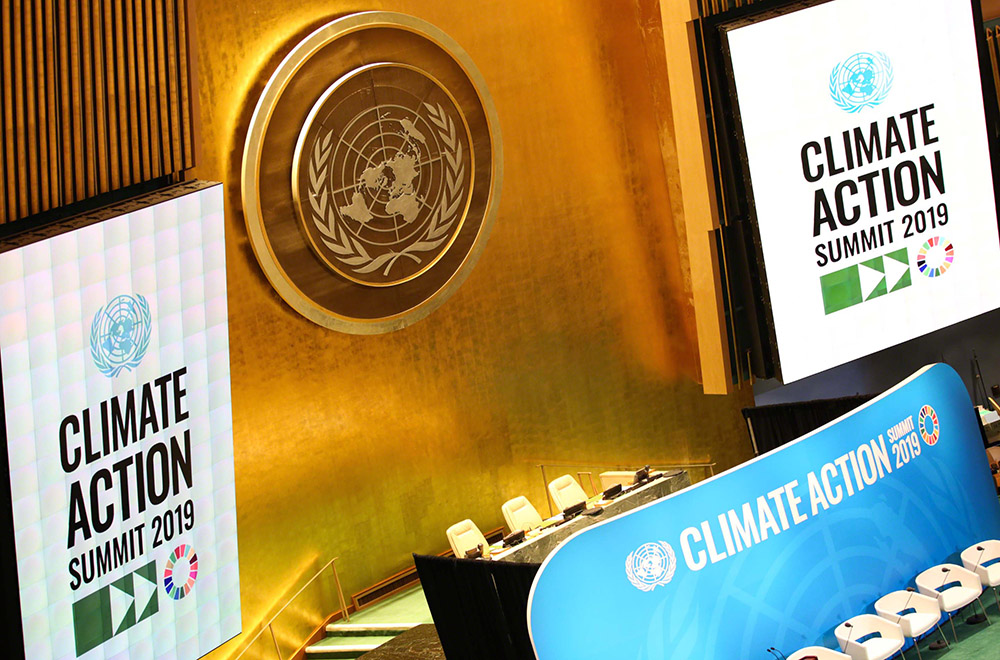
The UN Climate Action Summit, an initiative of UN Secretary-General António Guterres to encourage increased ambition on climate change action, was attended by over 65 heads of state and government, in addition to leaders of sub-national governments and from the private sector. “We don’t negotiate with Nature,” Guterres said in his opening address. He urged leaders to be ambitious in their commitments, saying “the biggest cost is subsidizing a dying fossil fuel industry, building more and more coal power plants, denying what is plain as day, that we are in a deep climate hole and to get out of it we must first stop digging.”
Greta Thunberg, a young activist from Sweden, accused governments of “failing us” in a stirring address during a youth dialogue with the Secretary-General. “People are suffering, dying, ecosystems collapsing,” she said. “We are at the beginning of a mass extinction. All you can talk about is money and fairy tales of eternal economic growth.”
The opening ceremony was followed by thematic sessions, interspersed by general statements by heads of state and government. Thematic sessions were held on: Plans for a Carbon Neutral World; Climate Finance; Powering the Future from Coal to Clean; Unlocking the Potential of Nature in Climate Action; Towards a Resilient Future; Small Island Developing States; Live, Work and Move Green; Cutting Greenhouse Gas (GHG) Emissions Now with Cooling and Energy Efficiency; Adapting Now: Making People Safer; Least Developed Countries; People Centered Action Now; and the Economy Moving from Grey to Green.
A number of commitments and announcements were made through the day by national and sub-national governments, and private sector representatives, including:
President Sebastián Piñera Echeñique, Chile, the host nation for the 25th Conference of Parties (COP 25) to the UN Framework Convention on Climate Change (UNFCCC) in December 2019, said 30 countries have committed to carbon neutrality by 2030, and more than 60 have committed to increasing ambition in their Nationally Determined Contributions (NDCs).
In the final reckoning, however, observers expressed concern that the sum total of new contributions is “tragically insufficient” in light of the scale of the fundamental transformation that is needed. They wondered whether any of the day’s commitments really strike a fatal blow to the “fairy tales of eternal economic growth.”
+ Visit the web coverage for the Climate Summit
+ Read the ENB report for the Climate Summit (HTML or PDF format)
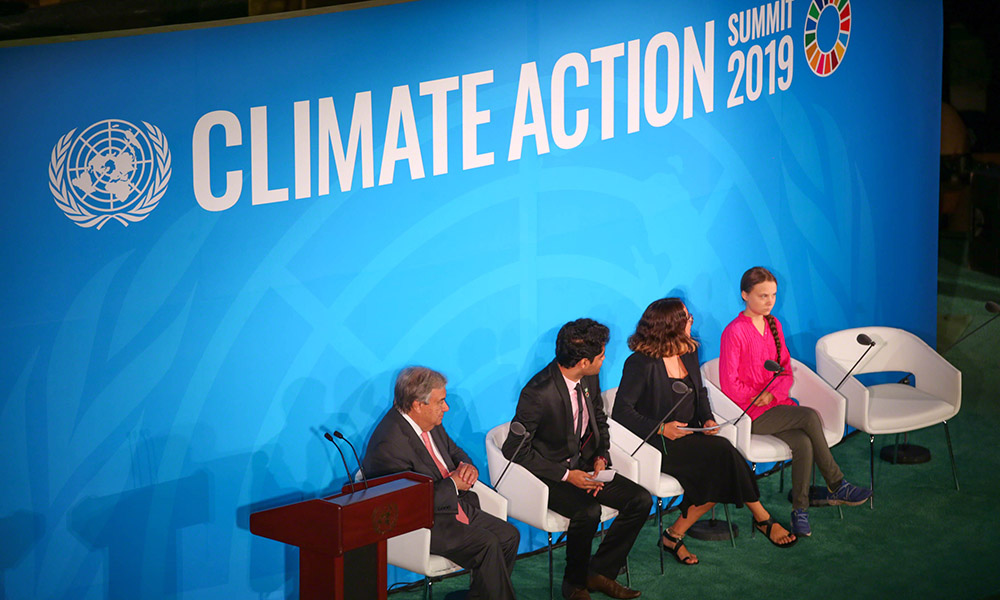
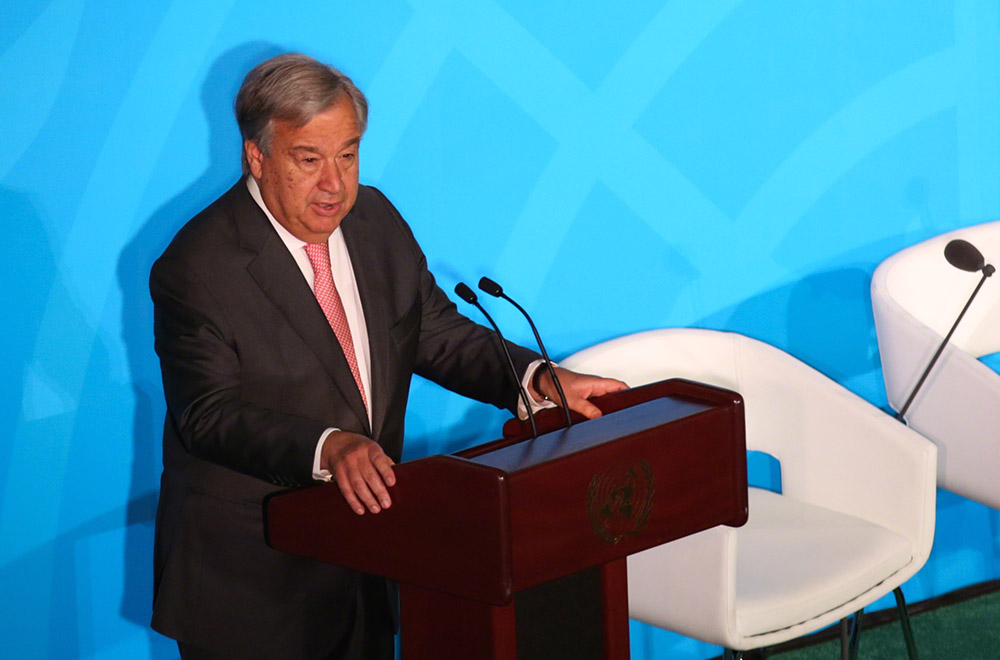
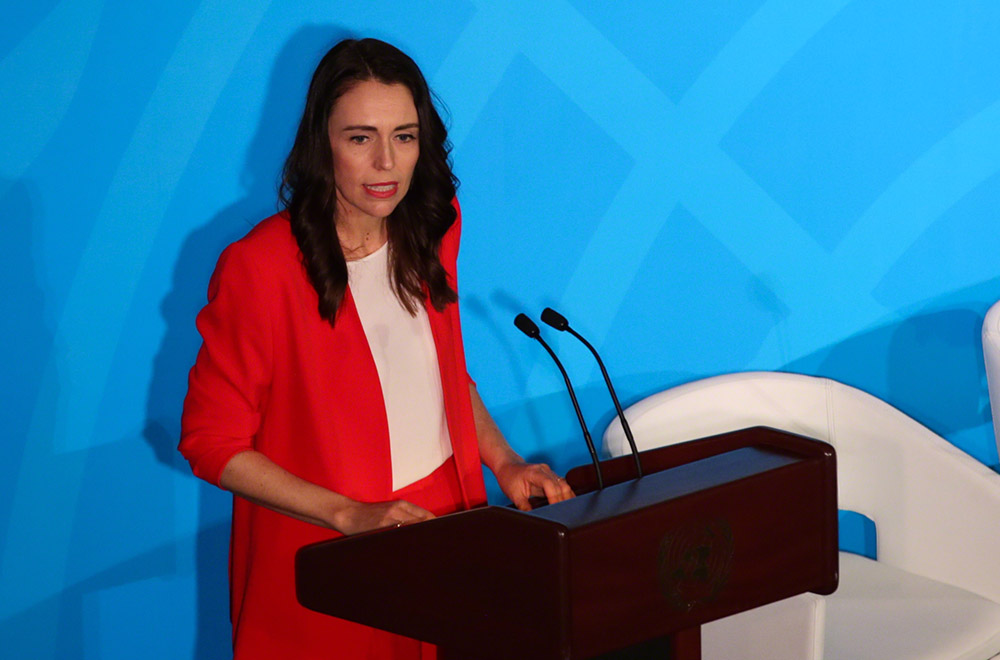
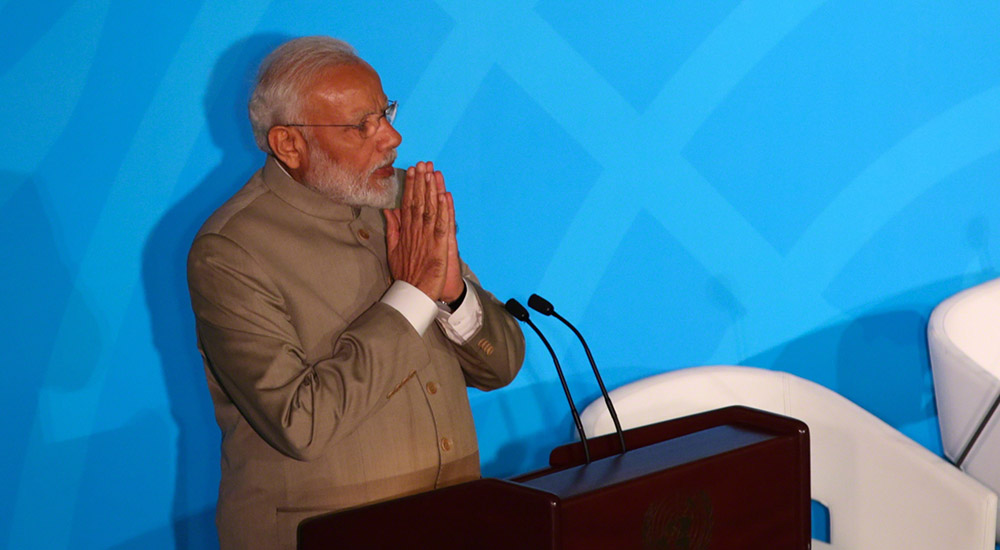
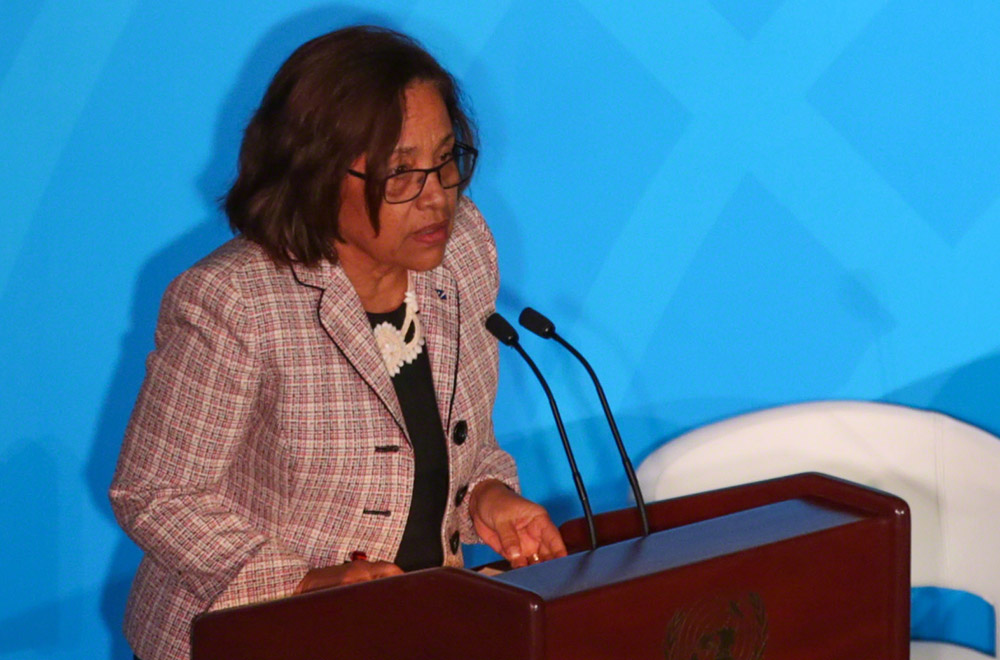
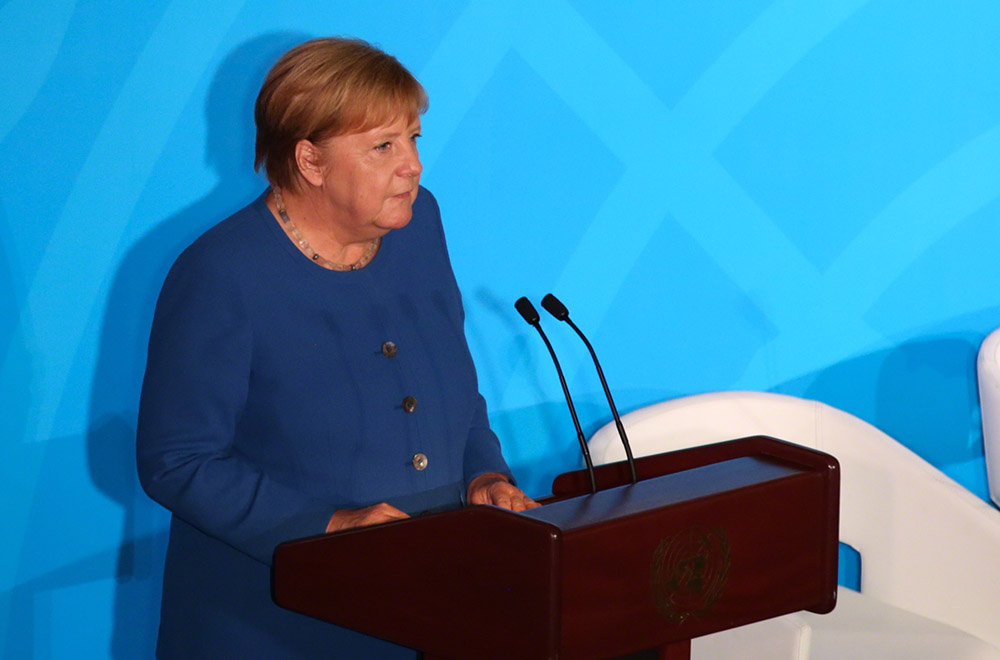


DOWNLOAD ENB REPORTS
UN Resources
- UN Summit Website
- Climate Action Summit Website
- SDG Summit Website
- FfD High-level Dialogue Website
- High-level Midterm Review of the SAMOA Pathway Website
IISD ENB Meeting Coverage
- Katowice Climate Change Conference - December 2018, 2-14 December 2018, Katowice, Poland
- 2019 High-level Political Forum on Sustainable Development (HLPF 2019), 9-19 July 2019, UN Headquarters, New York
- 3rd International Conference on Financing for Development (FfD3), 13-16 July 2015, UN Conference Centre (UNCC), Addis Ababa, Ethiopia
- 3rd International Conference on Small Island Developing States (SIDS), 1-4 September 2014, Apia, Samoa
IISD Resources
- Subscription Page for IISD Reporting Services Peer-to-Peer Mailing Lists (including CLIMATE-L, SDG, SIDS-L, OCEANS-L, BIODIVERSITY-L, and Regional Updates)
- SDG Update Newsletter - A compilation of news, commentary and upcoming events published on the SDG Knowledge Hub
- SDG Knowledge Hub - An Online Resource Center for News and Commentary Regarding the Implementation of the United Nations’ 2030 Agenda for Sustainable Development, including all 17 Sustainable Development Goals (SDGs)
- Linkages Update - International Environment and Sustainable Development News

 Specific funding for IISD Reporting Services coverage of the UN Summits Week 2019 has been provided by the Ministry for Environment, Nature Conservation and Nuclear Safety of Germany (BMU) and the European Union (EU)
Specific funding for IISD Reporting Services coverage of the UN Summits Week 2019 has been provided by the Ministry for Environment, Nature Conservation and Nuclear Safety of Germany (BMU) and the European Union (EU)